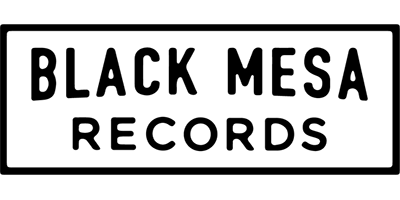
Americana Kingpin Greets a New Day on Tim Easton’s You Don’t Really Know Me
On You Don’t Really Know Me (Black Mesa Records) — an admirably taciturn 10-song disc that clocks in at the length an album ought to and coming in August to a record store near you — Tim Easton sings, “Nobody wants to wake up angry. Nobody wants to go to bed insane.” A longtime force on the singer-songwriter scene, he would know. He’s been there, done that, and got the ripped-up T-shirt. With this extraordinary new offering, he turns his gaze inward, and faces a platoon of demons as he blurs the lines between folk, blues, and workingman’s rock & roll, as is his wont; in so doing he finds the nice handful of peace and hard-bitten wisdom we all seek.
The front cover photograph is telling. His profile is in darkness except for a harsh lamp tracing out the edge of his features and sunglasses. It could be the Light we all seek, or it could be an interrogation lamp. Or hey, could be both. That’s how troubadours carry water, after all.
“The interrogation is true,” Easton admits, “I’m still hiding something because I’m wearing sunglasses. I looked at it and said yeah, I’m telling you something about myself by hiding something.”
Over an impressive, critically-acclaimed run of twenty years, Easton’s played dives, high-class joints, indoors, outdoors — he’s even played in Russia. He opened for Townes, Kris, Lucinda, Hiatt — and before all that, in his salad years, he busked all around Europe with his running buddy (of all people), Beck, and then after scads of acclaimed records, he saw the rot set in. In recent years, he’s burned bridges, hoisted a few here and there, toked a bit, watched his marriage unravel, and wound up a wee bit fried on the whole traveling minstrel thing. (And everything else.) Not to mention owing a passel in unpaid traffic and speeding fines in several states. (His summation is classic: “That Woody Guthrie lifestyle is all fine and dandy until you’ve got an arrest warrant.”) After missing a gig because he (wisely) knew he wasn’t fit to drive to it, he took a day and then came home to rebuild his life. And then the pandemic happened. Joy, joy. Nothing better for a battle-scarred folksinger with troubles but a year in isolation talking to himself. Yeah, that’s healthy. …
Happily, it’s not all as bad as it sounds. The time for reflection did him good. He got his mind on right, took up meditation, cleaned himself up, and the song faucet turned on full blast. It was a new day, and You Don’t Really Know Me turned out more uplifting than downcast. It’s not a record about being down, it’s about getting back up. “I’d been on the road all the time, and then when I was back home, I was in my head, my songwriter self-centered bullshit head. And so, the pandemic actually helped me.”
Produced by the venerable tag team of Brad Jones and Robin Eaton (who go back to Easton’s solo debut two decades ago), Easton’s voice-of-experience singing is flanked by acoustic guitar, upright bass, and lushly atmospheric Mellotron. The record boasts contributions from Tommy Scifres (Aaron Lee Tasjan) and Nikki Barber (the Minks). The autobiographical “Real Revolution” spells out the record’s theme of rebirth, redemption, and personal rediscovery in three minutes.
Real revolution does not have to be the violent kind; real revolution takes place in your heart and in your mind
He captured the album’s songs in a series of live takes, occasionally working with drum loops and recording his vocals live on the basic track rather than doing it later, adding immediacy to things. There are Leadbelly-influenced protest songs (“Son My Son”), caffeinated folk-rock anthems (“Speed”), moving tributes to John Prine (“Voice On The Radio”) and Justin Townes Earle (“River Where Time Was Born”), and an anthemic rallying cry for communion and camaraderie (“Festival Song”).
“In some ways, it’s a recovery album,” he says, having written the bulk of it during the quarantine. “Not only recovery from a vice, but also from a divorce and a destructive, rambling life of self-gratification. It’s a peaceful, positive, loving album about personal revolution.” Indeed, there is peace and love in his life; his relationship with his ex is good, and he’s deeply involved in his 10-year-old daughter’s life. Sobriety and a new practice of transcendental meditation — and the bright side of 13 months of enforced isolation — has done him a world of good.
He hides very little on the album, within the limits of good taste of course, even though he tried occasionally to shield behind a fictional character in a way that fell apart and revealed himself instead. “The first song was the last song we recorded for the album, and I wanted a title-track song,” he says, “I wanted it to have like a Neil Young-ish backbeat and riff behind it. It began like a Randy Newman song where I was trying to make up some character, and I was like ‘why don’t I just tell the truth about my family? And some of the mistakes I’ve made?” He adds, “in a way perhaps I’m talking about how a mistake doesn’t define you.”
He is aiming to keep the honest reflection flowing. He’s talked with (managing editor) Chuck Allen about starting a column called “Critical Bitch” in the magazine you’re looking at right now. “There’s something to be said about not being a critic so much as being a writer and talking honestly about how you feel as an artist and talking about your friend’s records that are being made,” he remarks.
Raised in Akron, growing up there and in upstate New York, Easton absorbed a smorgasbord of influences. As he says, “I love the Rolling Stones and the Beatles, but I also love Doc Watson.” After college came the busking years — seven years of it! — and then he joined the Haynes Boys, wrote songs for them, and recorded one album, Guardian Angel. Going solo, and — always the wanderer — relocating to Los Angeles, he signed with New West Records and came out with 2001’s The Truth About Us, and in 2003’s Break Your Mother’s Heart, which garnered 4 stars in Rolling Stone, who championed him as having a “novelist’s sense of humanity.”
The records kept coming, along with the accolades: year-end best-ofs and general acclaim. Over two decades, it was all more fun than a barrel of monkeys. Until it wasn’t. (We’ve covered that ennui already.) He’s on the other side of all that. And he’s taking steps to ensure that the demons don’t come back to bedevil him. One of those steps is planning on curtailing the roadwork to one long weekend a month so he can spend time with his daughter and keep his head on straight.
Rejuvenated by sobriety, You Don’t Really Know Me finds him making peace with the past and focusing on the present. “Gone are the wistful, drunken wanderer tunes of the past,” he explains. “These are songs for today.”
Upon taking up meditation, he was given a mantra to chant to himself until his mind went somewhere else instead of eating his brain from the inside out, “it’s something to calm down the fearful mind,” he explains. Hey, whatever works. And in this case, with a strong new album and a hard-fought new place of contentment being evidence of it. He used to be so much older then; he’s younger than that now. And in serenity, there is power.
